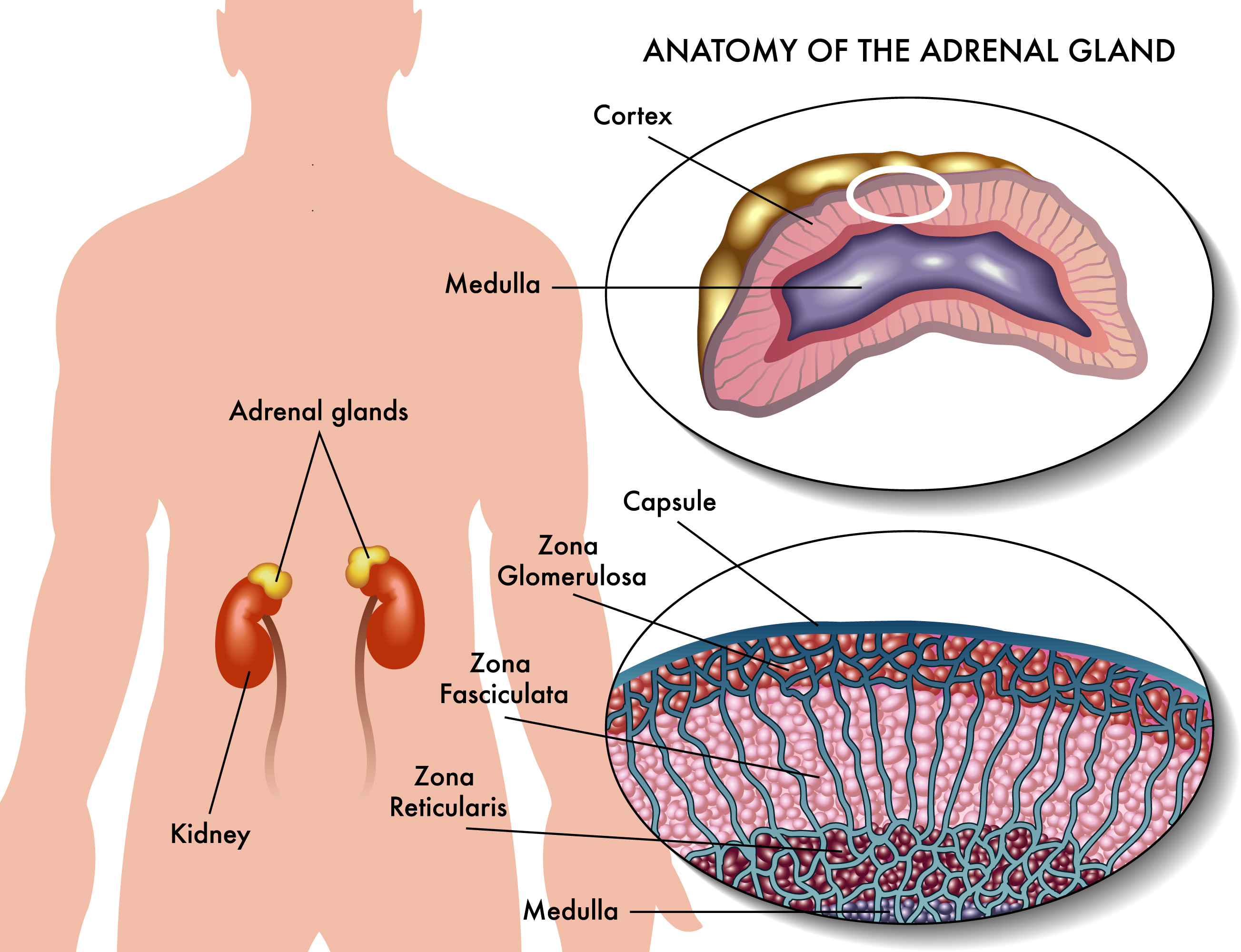What is Addison's disease?
1 Answer
Addison's disease is a rare hormonal disease where the adrenal glands do not produce enough cortisol.
Explanation:
Addison's disease is a rare hormonal disease where your adrenal glands, two glands that regulate hormones and are above each kidney, do not produce enough cortisol, a hormone that is produced when the body is stressed in some sort of way. In some cases the glands also do not produce enough aldosterone, another hormone that is related to blood pressure.

A person may have Addison's because the adrenal glands did not fully form, were injured, or were formed but do not function properly. Most cases of Addison's disease are caused by autoimmune diseases: the body attacks the adrenal glands.
Symptom's of the disease include depression, loss of body hair, weight loss, low blood sugar, salt cravings, muscle weakness, hyperpigmentation, and joint pain.
The disease is treated by hormone replacement therapy, which corrects the amount of hormones the body produces.

